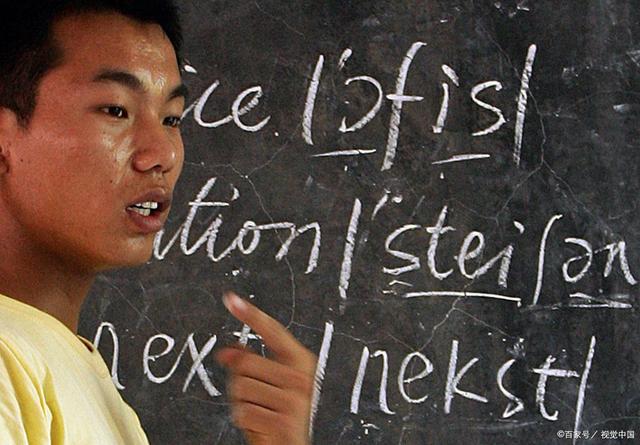单词表
|
Module 1 Using my five senses |
||||
|
U 1 Touch and feel |
U 2 Smell and taste |
U 3 Look and see |
||
|
touch碰;触摸 |
smell闻;嗅 |
rise升起 |
||
|
feel摸起来;感到 |
strawberry草莓 |
shadow影子 |
||
|
soft柔软的 |
or或许;仍是 |
noon正午 |
||
|
hard坚固的 |
watermelon西瓜 |
high高的 |
||
|
thick厚的;粗的 |
grape葡萄 |
sky天空 |
||
|
thin 薄的;细的 |
fox狐狸 |
evening傍晚;晚上 |
||
|
blind瞎的;失明的 |
round圆的 |
again再;又 |
||
|
noise响声;吵嚷声 |
purple紫色的 |
night夜晚 |
||
|
young年青的 |
wait等候;等候 |
moon月亮 |
||
|
? |
minute一会儿;分钟 |
him他 |
||
|
? |
get得到 |
stop停下 |
||
|
? |
those那些 |
at noon在正午 |
||
|
? |
? |
go down落下 |
||
|
? |
? |
at night在夜晚 |
||
|
? |
? |
take a walk漫步 |
||
|
Module 2 My favourite things |
||||
|
U 4 Subjects |
U5 Sport |
U 6 Music |
||
|
subject学科;类别 |
sport 体育运动 |
wonderful 使人开心的 |
||
|
lesson课 |
football 足球 |
violin小提琴 |
||
|
Chinese(学科)语文 |
club 沙龙;快乐喜爱小组 |
guitar吉他 |
||
|
Maths(学科)数学 |
join 参加;参加 |
whose谁的 |
||
|
English(学科)英语 |
tell 告诉 |
piano 钢琴 |
||
|
Science(学科)科学 |
about 关于 |
city 城市 |
||
|
PE(学科)体育 |
basketball 篮球 |
bag 袋子 |
||
|
Music(学科)音乐 |
volleyball 排球 |
gold 金子 |
||
|
Art(学科)美术 |
us 咱们 |
all悉数;所以 |
||
|
timetable课程表;时刻表 |
table tennis 乒乓球运动 |
play the violin 拉小提琴 |
||
|
from从;来自 |
play football踢足球 |
play the guitar 弹吉他 |
||
|
a.m.上午 |
play basketball打篮球 |
? |
||
|
p.m.下午 |
play volleyball打排球 |
? |
||
|
break歇息 |
? |
? |
||
|
from…to…从…到… |
? |
? |
||
|
? |
? |
? |
||
|
Module 3 My colourful life |
||||
|
Unit 7 My day |
Unit 8 Days of the week |
Unit 9 A friend in Australia |
||
|
o’clock …点钟 |
week 星期 |
China 我国 |
||
|
quarter 一刻钟 |
Monday 星期一 |
talk 说话 |
||
|
time时刻 |
with和…….一同 |
May 五月 |
||
|
half一半 |
Tuesday 星期二 |
June六月 |
||
|
wash洗 |
Wednesday 星期三 |
January一月 |
||
|
dinner晚餐;正餐 |
Thursday周四 |
February二月 |
||
|
start初步 |
Friday星期五 |
March三月 |
||
|
catch捉住 |
game 游戏 |
April四月 |
||
|
get up起床 |
Saturday星期六 |
July七月 |
||
|
brush…teeth 刷牙 |
Sunday周日 |
August8月 |
||
|
half past… ……点半 |
clock时钟;钟 |
September九月 |
||
|
have breakfast 吃早餐 |
play chess 下世界象棋 |
October十月 |
||
|
go to school去上学 |
at the weekend 在周末 |
November十一月 |
||
|
wash…face洗脸 |
(be) late for 迟到 |
December十二月 |
||
|
have lunch 吃午饭 |
? |
email电子邮件 |
||
|
have dinner吃晚餐 |
? |
hat 帽子 |
||
|
go to bed上床睡觉 |
? |
wear 穿;戴 |
||
|
? |
? |
yours 你的;你们的 |
||
|
? |
? |
every year 每年 |
||
|
Module 4 Things we enjoy |
||||
|
Unit 10 My garden |
Unit 11 Children’s day |
Unit 12 The ugly duckling |
||
|
garden 花园 |
song 歌曲 |
ugly 丑的;丑陋的 |
||
|
plant 植物 |
zoo 动物园 |
duckling 小鸭 |
||
|
leaf 叶子 |
cinema 影片院 |
duck 鸭子 |
||
|
water 给……洒水 |
museum 博物馆 |
river 江;河 |
||
|
them他们;她们;它们 |
also 也;还 |
baby 宝宝 |
||
|
grow 生长;生长 |
have a party 举办集会 |
later 后来;今后 |
||
|
seed 种子 |
? |
quack(鸭叫声)嘎嘎 |
||
|
every day 每天 |
? |
back 背;背部 |
||
|
? |
? |
away 去别处 |
||
|
? |
? |
swan 天鹅 |
||
|
? |
? |
into 朝;向;到……里边 |
||
|
? |
? |
? |
? |
? |
语法温习
1. 量词的用法
There is a glass of watermelonjuice.
There are three glasses of strawberry juice.
2. 选择疑问句和一般疑问句的差异
(1) 一般疑问句Is thekite red and blue?(这风筝是蓝赤色的吗?)
一般疑问句的答复 有必要Yes或No最初 Yes, it is./No, it isn’t.
(2) 选择疑问句Is thekite red or blue?(这风筝是蓝色仍是赤色?)
选择疑问句的答复有必要是二选一: It’s red.或It’s blue.
3. 关于like后边接不一样的名词和动词
like apples / like green ones (可数名词复数)
like the apple / like the green one (可数名词奇数)
like jelly (不可以数名词)
like dancing=like 
to dance (动词)
would like to dance (would like to do=want to do)
be like me/her/his father… (说明为像,作介词)
4. 感叹句
What nice grapes!(复数)
What a nice girl! (奇数)
5. whose对一切格发问
Whose bag is this?—–It’s peter’s. (this/that答复用it’s)
Whose knives are those?—–They are his knives. (these/those答复用they’re)
6.so和too说明为如此、太时后边跟描述词
It’s so thick. /He is so puzzled.
It’s too noisy.
7. How+助动词+主语+动词
The pineapple is rough. (划线发问)
Howdoes the pineapple feel?
This cherry is sweet. (划线发问)
How does this cherry taste?
8.祈使句和can句型永久用动词原形,即便有now,也不能是进行时
祈使句 Let’s make a card now.
Kitty, don’tput your book on the floor.(否定句在动词前加don’t)
can句型 Can Lucy read the book now?
(简略犯的差错:看见Lucy一自个就用三单reads,或看见now用进行时)
9. There be就
近原则,后边所接词有必要看清是不是是可数名词然后断定be动词
There is a cat and two dogs. (离得近的是奇数)
There are two dogs and a cat. (离得近的是复数)
There is some paper. (不可以数)
There are some paper rabbits. (前面有润饰的名词复数)
There are some sheep. (单复数相同)
There is some string. (不可以数)
There is a lot of applejuice. (前面有润饰的不可以数)
10. both和all 放在be动词之后,do动词之前
We are both tall. (be动词之后)
They are all blind. (be动词之后)
We both run fast. (do动词之前)
The brothers all touch the elephant. (do动词之前)
11. one of the 复数,谓语三单
One of the boys is Tom.
says one of the brothers
12. 一般时和进行时的差异
进行时:当语句里有标志性的词如now,look,listen,it’s…几点(祈使句和can句型在外),或是某个有上下景象的语句标明这个动作如今正在发生,规划be+doing
Listen, birds are singing.
Where’s Sam? He is 
playingfootball outside.
一般时:当语句里有标志性的词如every morning, on Moday, at weedends, always, usually, often,sometimes,never, at…几点等,标明陈述某个实际。当主语是I,you,复数时谓语动词原形,当主语是第三人称奇数时动词三单。
Our classmate watches TV atweedends.
(不能受our影响,主语是classmate奇数,动词watch三单加es)
His friends always stay at home.
比照:
It’s two o’clock. Kitty is readinga book.
Kitty reads a book at twoo’clock.
13. 球类运动前不加the: playbasketball
三餐前不加the: have dinner
乐器类前有必要有the: play the drum
14. 将来时态,标志性词tomorrow,nextSunday等
will+do /be going to do
She will go to the park.
15. 曩昔式,标志性词last night
His clock stopped at tenthirty last night.
16.时刻的表达(一)
(1)整点: six o’clock
(2)1-29分(15分在外)用past: ten past seven (7:10)
(3)15分:a quarter past two (2:15)
(4)30分:half past five (5:30)
(5)45分:a quarter to two (1:45)
(6)30-59分(45分在外,用减法)用to:ten to seven (6:50)
时刻的表达(二):直接读数字
7:10 seven ten
2:15 two fifteen
5:30 five thirty
17. 某些词后需要加ing:
go shopping /fishing /swimming
finish doing
learn painting
18. 作为学科需要首字母大写
Music class Chinese class English class Math class
说明为音乐不需要大写 music room、I am the music man.
19.乐器以及声响
Ding-ding——-piano Ting-ting——triangle
Zing-zing——violin Boom-boom—–drum
20.关于节日
节日一般具体到某一天用on:
on Children’s Day
可是在我国传统节日前介词用at,而且一切我国传统节日有the:
at the Spring Festival
除了表达其他意义,介词可以改变:
before the Spring Festival 新年前
after the Spring Festival 新年后
What do you need for the Spring Festival? 为新年预备
21. 介词+宾格,动词+宾格
eat all of them
I want them.
walk behind him
?。
 微信扫一扫打赏
微信扫一扫打赏
 支付宝扫一扫打赏
支付宝扫一扫打赏



